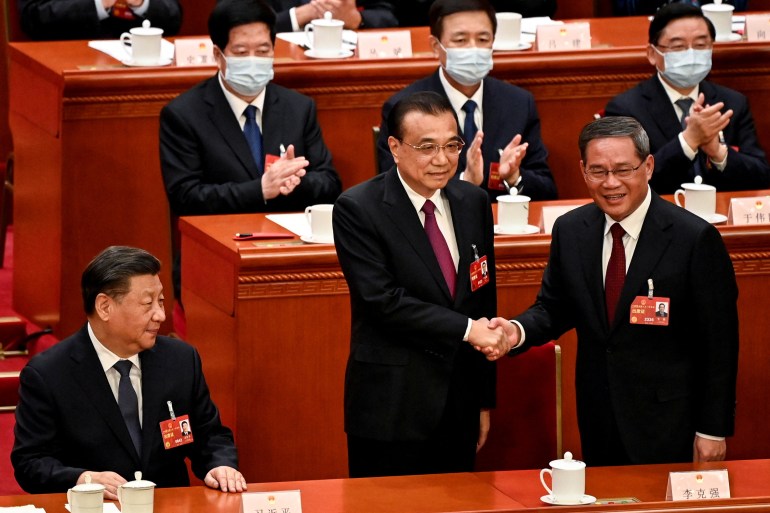
During the ongoing annual meeting of China’s parliament, China’s third-term President Xi Jinping appointed his close ally and confidant Li Qiang to the role of premier. According to Reuters, the position is in charge of overseeing the country’s economy. Li Qiang, 63, is a close associate of ‘Supreme Leader’ Xi Jinping, serving as his chief of staff from 2004 to 2007.
Li Keqiang is replaced by Li Qiang, the former Communist Party chairman of Shanghai. The former premier was in office for two five-year terms.
The new premier, widely seen as pragmatic and business-friendly, faces the tough job of bolstering China’s uneven economic recovery. With consumer and private sector confidence low and global challenges, the nation’s economy is weighed down following three years of COVID-19 restraints.
It increased by only 3% last year. Beijing set a modest growth target of roughly 5% for 2023 on the first day of the current parliament session, its lowest in over three decades.
According to Christopher Beddor, deputy China research director at Gavekal Dragonomics, Li’s key priority this year would be to meet the growth target while avoiding major inflation or debt accumulation.
His ascension to the premiership coincides with the most significant government reshuffle in a decade, as Xi installs a slate of loyalists in important positions. His rise to power coincides with escalating tensions with the West.
Experts are divided on how much policy leeway Li Qiang will have
Experts are divided on how much policy leeway the 63-year-old former Shanghai Communist Party head will have when he begins his five-year tenure, given that the position’s authority has dwindled over the last decade as Xi has consolidated control.
In addition to Li Qiang, the NPC backed Zhang Youxia and He Weidong as Vice Chairmen of the Central Military Commission (CMC), the Chinese military’s supreme command led by Xi, and Li Shangfu, Liu Zhenli, Miao Hua, and Zhang Shengmin as CMC members.
